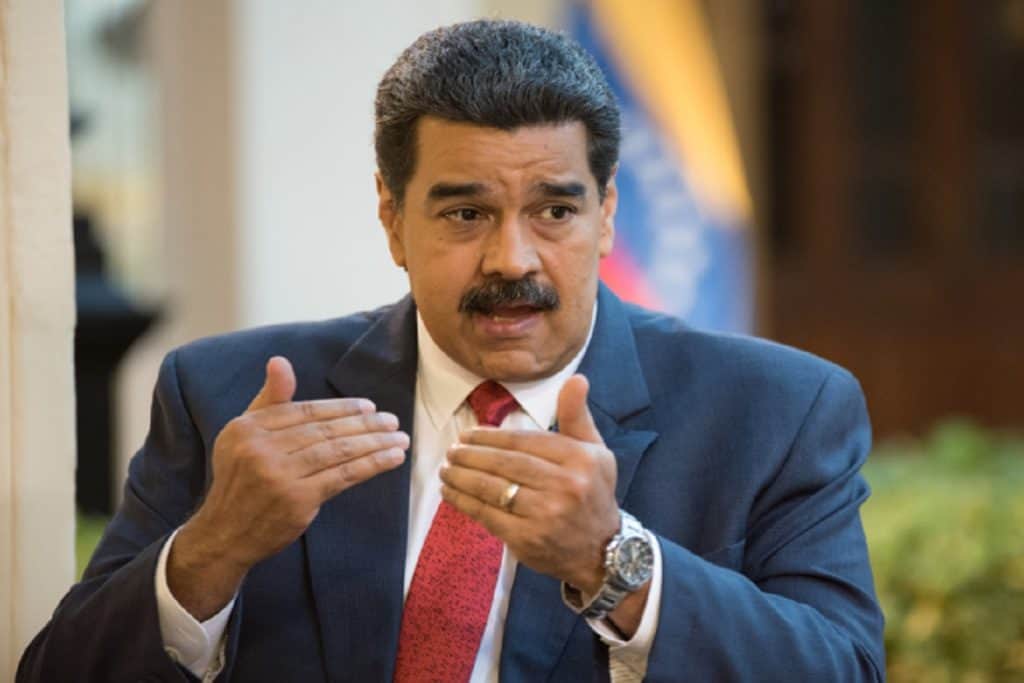On January 23 Venezuela began to have two parallel presidents. Since then, the international community has been divided between those who recognize the socialist regime of Nicolás Maduro – supported militarily and economically by China, Russia and Cuba – and those who claim that the leader of Parliament, Juan Guaidó is the true president of the Republic after not-recognizing the last elections of May 20, 2018 where Maduro was re-elected to continue the more than 20 years of the ruling Socialist Revolution.
Although Guaido has some popular support and political and military support from the US, it is really that Nicolás Maduro continues to control the nation thanks to the strong support of the Venezuelan armed forces and the support he receives from numerous anti-western actors in the continent.
After 8 months of threats and numerous attempts at dialogue between representatives of Maduro and Guaido in Norway and the Dominican Republic, the situation has reached a point of stagnation: The reality is that Maduro cannot annihilate Guaido, nor can Guaido annihilate Maduro. . Therefore, the United States has noted that they need to strengthen their coercive diplomacy strategy to get Maduro out of power and make way for democratic transition in the South American nation. Recently, US President Donald Trump and Venezuelan President Nicolás Maduro said their governments have been in contact.
Yes! Was Trump’s response at the Oval office when journalists asked him if he has kept secret contacts and negotiations with representatives of the Maduro government over the past few months.
A few hours after Trump’s confession, the Chavista leader and first vice president of the United Socialist Party of Venezuela, Diosdado Cabello denied the statements of the US president. However, the next day Mr. Maduro surprisingly declared in the Venezuelan state media: “I confirm that for months there have been contacts of senior US government officials. Trump and the Bolivarian government that I preside, under my express and direct authorization. There are several contacts, several ways. To seek to regulate this conflict, to seek a process of regularization of the conflict with the US empire And it is not new, for months we have contacts, just as I have sought dialogue in Venezuela, I have sought a way for President Donald Trump to listen to Venezuela and its Bolivarian Revolution really. ”
The US national security advisor In the US, John Bolton said that the purpose of these contacts is only to discuss Maduro’s exit from power, ensuring that the US is willing to hold new democratic elections after 50 countries, the OAS and the European Union ignore the Maduro’s new mandate that began earlier this year.
An interesting fact is that the public revelation of these approaches comes a few days after the Maduro government refused to continue dialoguing with the opposition at the August 8 and 9 meetings in Barbados. Chavista leaders say it is “impossible” to dialogue while the “puppets of US imperialism” continue to impose sanctions on officials of the Venezuelan State. The last package of sanctions imposed by the United States, which froze all the assets of the Venezuelan government, in a new attempt to encircle Maduro that adds to the veto “more than 100 officials close to Chavismo.” Therefore, the fact that Trump decided to make public contacts with senior Venezuelan government officials to discuss Maduro’s possible exit from power is a new strategy of coercive diplomacy against the president.
On the other hand, China and Russia have remained “neutral” in word, but not in action, that is, although a parade of declarations in support of Maduro and the Bolivarian Revolution are not common because of the resounding economic failure of the Marxist model -Socialist, the Chinese and the Russians continue to indirectly support the continuity of the Chavista government through the easing of loans and military support to neutralize any possible coup attempt such as the one that occurred on April 30.
The Trump administration is urged to get a quick and safe way out of the Venezuelan crisis for several reasons. First of all we must consider that the next year 2020 is an election year for the US and the president needs to guarantee his re-election. In the American electoral system, the State of Florida contributes an invaluable amount of votes and it is of great interest for all candidates to succeed in that locality. In Florida there is a large community of American citizens of Venezuelan and Cuban origin emigrated in recent decades who flee from persecution, hunger and the very poor living conditions imposed by the socialist “Revolutions” in both countries.
If the Trump administration manages to return democracy to Venezuela, not only would it have the very valuable support of the Venezuelan community to win in the State of Florida, but also the Cuban community since the dictatorship in the Caribbean Island is sustained thanks to the “generous” economic contributions of the Venezuelan regime in exchange for military and intelligence support to support the government. In other words, a possible immediate exit from Maduro and the democratic restoration in Venezuela could guarantee – or at least significantly increase the possibility – that Trump will be re-elected in 2020 for a new presidential term.
It is also of great interest to the US to eradicate the Venezuelan government, accused of logistically and economically supporting numerous anti-Western agents that now operate in the Americas, such as drug trafficking groups, terrorist groups and the Colombian guerrillas.
The hope for the people of Venezuela is a peaceful, democratic and constitutional exit that manages to reunify the citizens of the country so that they can finally undertake the reconstruction and reconquest of the glorious prosperity that characterized Venezuela during the 1970s.
Image Credit: AsiSomos







